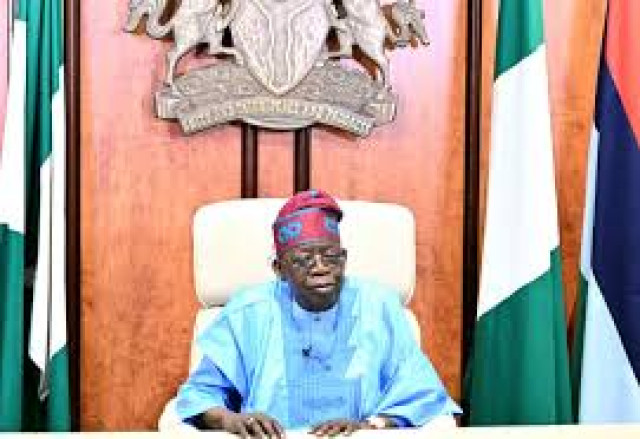The Federal Government on Wednesday admonished organised Labour to consider the broader economic implications of its push for an unrealistic higher national minimum wage.
The Minister of Information and National Orientation, Mohammed Idris, who handed down the admonition, hinted that the N250,000 minimum wage demanded by labour could undermine the economy, lead to mass retrenchment of workers and jeopardise the welfare of Nigerians.
However, the labour unions refuted President Bola Tinubu’s claims during his Democracy Day broadcast on Wednesday that an agreement had been reached on the new national minimum wage.
Acting President of the Nigeria Labour Congress, Prince Adewale Adeyanju, said as of the time negotiations ended on June 7, no agreement had been reached by the Tripartite Committee on the National Minimum Wage.
Adeyanju is acting on behalf of the NLC president, Joe Ajaero, who is attending an International Labour Organisation conference in Geneva, Switzerland.
Tinubu drew the ire of the unions after stating that his administration would soon submit an executive bill to the National Assembly to codify the agreements reached in the minimum wage negotiations between Labour, the private sector, the states and the Federal Government.
The parties had engaged in prolonged talks for weeks with the unions insisting on N250,000 minimum wage while the Federal Government and the Organised Private Sector offered N62,000.
However, the state governors said they would not be able to sustain any minimum wage higher than N60,000.
Dismissing the offers made by the Federal Government and the OPS, the labour unions said they would not negotiate what they described as ‘starvation wage.’
The Assistant General Secretary of the NLC, Chris Onyeka, said Labour would not accept the latest offer of N62,000 and the N100,000 proposal made by some individuals and economists.
This was as the NLC President, Joe Ajaero, said the unionists were waiting on the President to consider Labour’s proposal.
But speaking at the opening of the 2024 Synod of the Charismatic Bishops Conference of Nigeria in Abuja on Wednesday, the information minister emphasised the imperative of a realistic wage system that safeguards against mass retrenchment while addressing workers’ needs.
Idris restated the government’s dedication to reassessing the minimum wage but cautioned against demands that could disrupt the economy.
He stated, “As I have repeatedly said, the Federal Government is not opposed to the increase of wages for Nigerian workers but we keep on advocating for a realistic and sustainable wage system for the workers – a wage system that will not undermine the economy, lead to mass retrenchment of workers and jeopardise the welfare of about 200 million Nigerians.
“We want the labour unions to understand that the relief that Nigerians are expecting, and that they fully deserve, will not come only in the form of an increase in wages.”
He highlighted the ongoing efforts to alleviate the cost of living, citing initiatives like the Presidential Compressed Natural Gas programme aimed at reducing transportation expenses by 50 per cent.
While advocating wage increases, Idris stressed the importance of holistic relief measures beyond salary adjustments, urging Labour to recognise the significance of programmes like the CNG initiative in enhancing citizens’ purchasing power.
“It will also come as an effort to reduce the cost of living and to ensure that more money stays in the pockets of Nigerians. And this is where programmes like the Presidential CNG initiative come in.
“By replacing or complementing petrol usage with CNG, that programme alone will cut transportation costs by as much as 50 per cent,” he claimed.
The minister called on religious leaders to assist in raising public awareness about government initiatives and efforts.
He stressed the crucial role of the clergy in disseminating information about available opportunities and the government’s ongoing efforts.
“As a government, we need your support, advice, and feedback,” Idris stated.
“Very importantly, we need you to be aware of the efforts being made and the challenges being faced so that you can help us communicate these to your congregations and the general public,” he added.
The minister highlighted the influential platforms of religious leaders, noting their potential to enlighten Nigerians on their rights, responsibilities, and the economic opportunities provided by the policies under the President’s Renewed Hope Agenda.
The agenda, he noted, aimed to promote economic rebirth, strengthen national security, boost agriculture and food security, and transform infrastructure and transportation.
“Information and awareness are critical, and this is where our religious leaders come in. You have very influential platforms that can enlighten Nigerians on their rights, responsibilities, and the abundance of economic opportunities being thrown up by the policies and programmes being implemented under the Renewed Hope Agenda of President Bola Tinubu,” he explained.
In his remarks, the National President of the Charismatic Bishop Conference, Archbishop Leonard Kawas, reaffirmed the organisation’s unwavering support for Tinubu’s administration, emphasising their commitment to collaborative efforts to realise the nation’s collective aspirations.




















